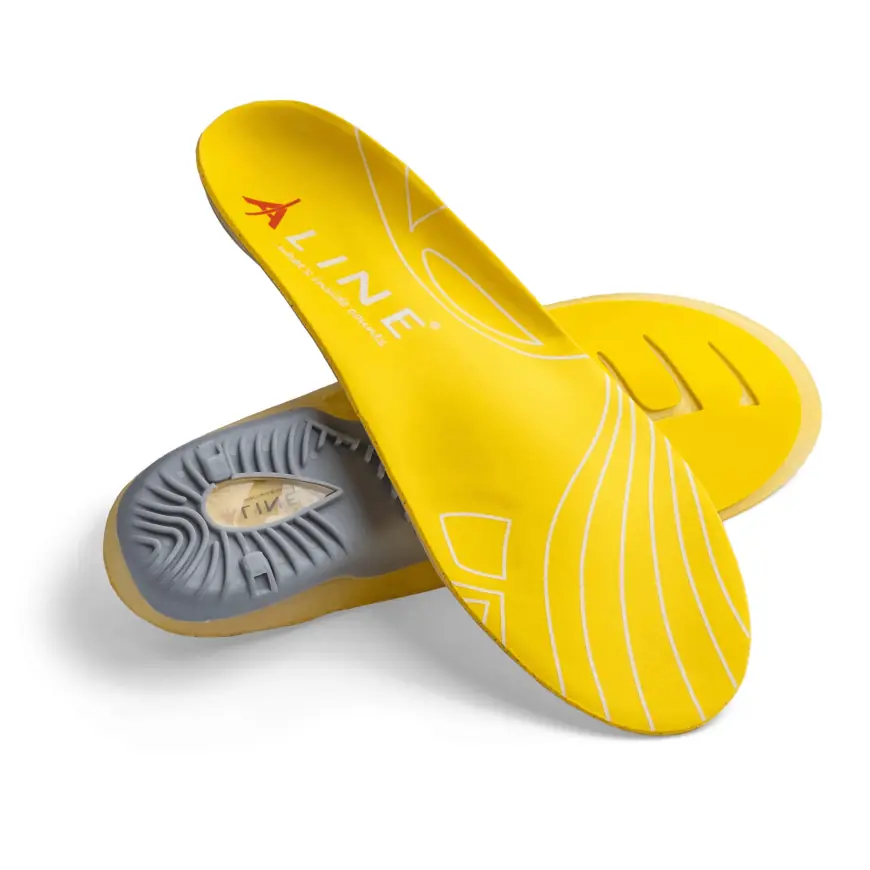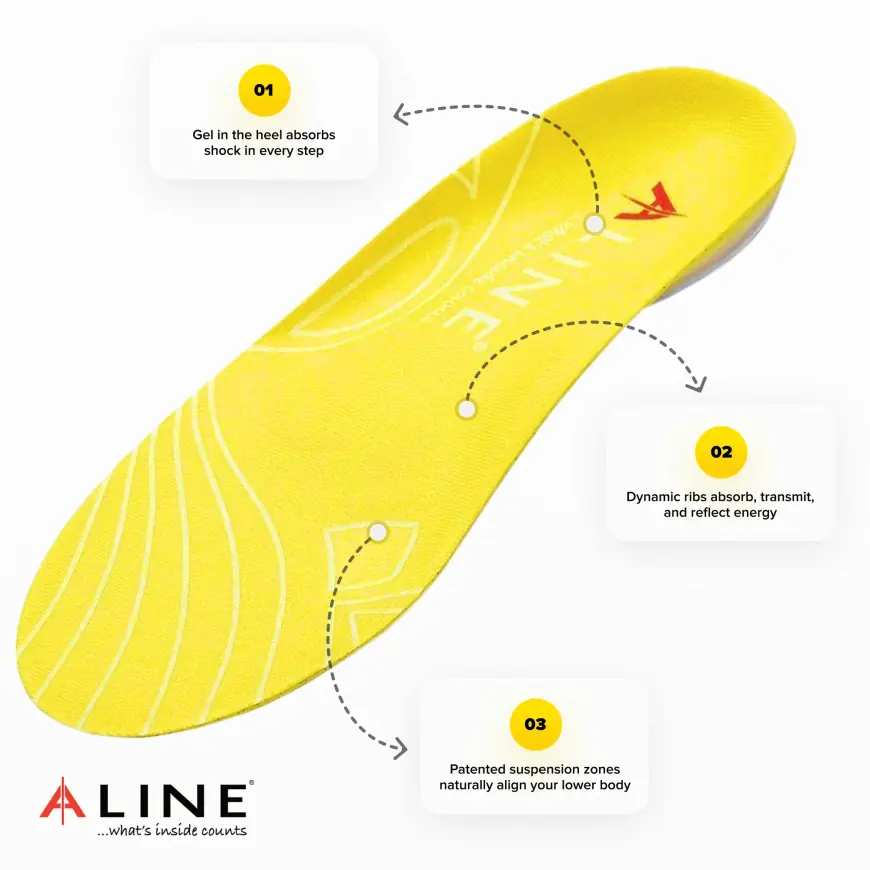How Do Waterproof Insoles Help Keep Your Feet Warm in Winter?
Keep your feet warm and dry this winter with waterproof insoles. Perfect for cold weather, they offer moisture resistance, comfort, and added insulation.

Waterproof insoles are essential for keeping feet warm and dry during winter. By creating a barrier against moisture, they ensure your feet stay insulated even in snowy or rainy conditions. Wet feet lose heat rapidly, but waterproof insoles prevent this by maintaining dryness, which is crucial for retaining warmth. With materials that offer both water resistance and thermal insulation, these insoles are a practical addition to your winter footwear. Whether for outdoor activities or daily commutes, they provide reliable comfort and protection against the harshest elements of winter.
The Science Behind Waterproof Insoles
Waterproof insoles function through innovative materials like neoprene or treated fabrics that resist moisture while retaining heat. When your feet stay dry, your body’s natural warmth is preserved, preventing the discomfort and health risks associated with cold, wet conditions. These insoles create an insulating layer within your shoes, ensuring cold air and water are kept out. This design not only protects against water intrusion but also keeps feet cozy during prolonged exposure to winter weather.
Enhancing Warmth in Winter Footwear
Many winter boots provide basic insulation but often lack sufficient moisture protection. Waterproof insoles address this gap, adding a crucial layer of defense against water while amplifying warmth. By maintaining dry conditions inside your shoes, these insoles help trap heat and create a comfortable environment for your feet. For individuals who rely on boots inserts for additional support, combining them with waterproof insoles enhances both comfort and functionality during cold weather.
Materials That Make Waterproof Insoles Effective
The effectiveness of waterproof insoles lies in their materials. Components like Gore-Tex or water-repellent foam act as barriers to moisture while allowing breathability. These materials are engineered to repel water and lock in heat, ensuring long-lasting performance even in extreme conditions. Their durability also ensures they withstand regular use in winter footwear, making them a reliable option for maintaining foot warmth.
Benefits of Dry Feet in Cold Weather
Wet feet are more prone to losing heat and developing frostbite in cold environments. Waterproof insoles solve this problem by keeping your feet dry, ensuring warmth and reducing the risk of cold-related issues. Dry feet also prevent the growth of bacteria and odors, further enhancing overall comfort. Whether you're walking, hiking, or standing for long hours, such as with Dr. Scholl's for standing all day, these insoles are a critical investment for winter.

Shielding Against Snow and Slush
Winter conditions often bring snow and slush that can soak through footwear. Waterproof insoles prevent this by creating a moisture-resistant barrier inside your shoes. This feature is especially beneficial for outdoor workers, winter sports enthusiasts, and anyone exposed to wet environments. With the ability to keep feet warm and dry, waterproof insoles make winter footwear more effective in combating seasonal challenges.
Improving Comfort with Waterproof Insoles
Waterproof insoles aren’t just about warmth—they also enhance overall foot comfort. They provide cushioning that reduces fatigue, making them ideal for individuals who spend long hours on their feet. Their ergonomic designs align well with various foot support products, ensuring a balance of comfort, warmth, and durability. The combination of water resistance and padding makes them indispensable for winter footwear.
Versatility Across Winter Activities
Waterproof insoles cater to a variety of winter activities. Whether you’re hiking through snowy trails, participating in winter sports, or navigating icy sidewalks, these insoles keep your feet warm and dry. They adapt seamlessly to different footwear types, offering consistent performance in diverse scenarios. Their versatility makes them an essential accessory for staying active and comfortable during winter months.
Pairing Waterproof Insoles with Socks
For maximum effectiveness, waterproof insoles should be paired with thermal or wool socks. This combination enhances insulation, creating a double layer of warmth and dryness. The synergy between waterproof insoles and proper socks ensures optimal protection against cold and wet conditions. Together, they make any winter footwear more effective in preserving foot warmth.
Ideal for Outdoor Work and Recreation
Winter can be harsh for outdoor workers and sports enthusiasts who need reliable protection for their feet. Waterproof insoles provide the necessary warmth and moisture resistance to withstand these challenges. They ensure that feet remain comfortable and functional even in freezing temperatures. Whether you’re working on icy surfaces or skiing down snowy slopes, these insoles offer unmatched support and insulation.
Care and Maintenance Tips
To maintain the effectiveness of waterproof insoles, regular cleaning is important. Wipe them with a damp cloth and allow them to air dry. Avoid exposing them to high heat, which can damage their materials. Proper care ensures these insoles remain water-resistant and effective for multiple winter seasons, extending their lifespan and value.
Are Waterproof Insoles Worth It?
Investing in waterproof insoles is a practical choice for anyone looking to enhance their winter footwear. By keeping feet dry and warm, they reduce discomfort and improve overall mobility. They also eliminate the need for expensive winter-specific footwear, as they can be paired with your existing shoes. Affordable and versatile, waterproof insoles are an excellent addition to any winter wardrobe.
Can Waterproof Insoles Fit All Shoes?
Most waterproof insoles are designed to fit a wide range of shoe types, from sneakers to winter boots. They can often be trimmed to size for a perfect fit, ensuring compatibility with various footwear styles.
How Do Waterproof Insoles Differ from Regular Ones?
Waterproof insoles provide moisture resistance and enhanced insulation, features not typically found in standard insoles. This makes them ideal for wet and cold conditions, offering benefits beyond basic comfort and support.
Are Waterproof Insoles Comfortable for Everyday Use?
Yes, waterproof insoles are designed for daily comfort. Their cushioning and support make them suitable for long periods of use, while their moisture resistance ensures feet stay warm and dry in winter conditions.
READ MORE....

 mhamza
mhamza 










